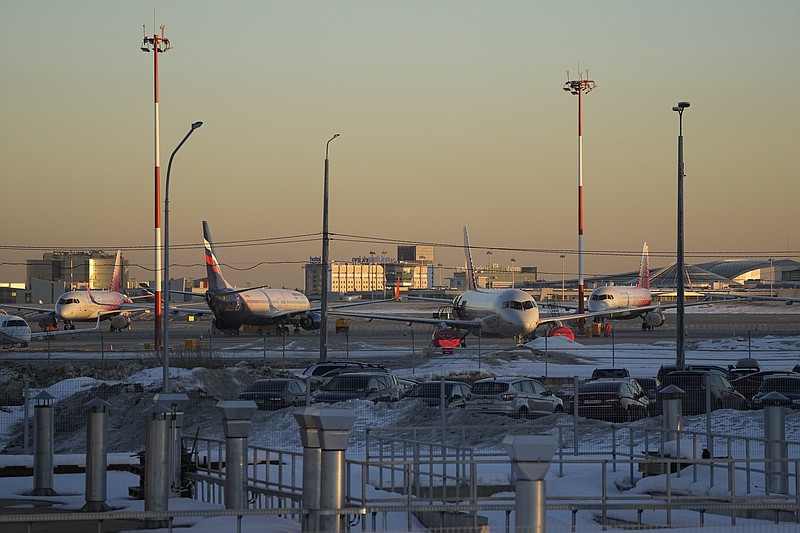The Western alliance has been remarkably united in its response to the wanton invasion of Ukraine. One crucial element of that response has been the imposition of unprecedented economic sanctions, including the targeting of individual Russians broadly referred to as "oligarchs". So, who are these men, and is it likely that their increasing financial pain will exert pressure on Putin to withdraw?
Aristotle is credited with coining the word "oligarchy" from the Greek "oligoi", meaning few, and "archein", to rule, in contrast to a "monarchy" or rule by one individual. The term "oligarch" has been popularly applied to a coterie of corrupt ultra-wealthy elites in Russia known for their luxury yachts, private jets, and London or Palm Beach mansions. However, assessing the impact of confiscating their assets requires a deeper look at just who they are and how much influence they can exert on the Russian President.
At the risk of oversimplifying, there are three distinct groups of men to whom the title oligarch has been applied: Yeltsin's cronies, Putin's billionaires, and Putin's inner circle of ministers and security apparatchiks referred to as the "siloviki".
With the breakup of the Soviet Union in 1990 and the ensuing economic chaos, state control of major industries collapsed. Newly elected President Boris Yeltsin privatized the largest enterprises by transferring ownership to a small group of supporters, instantly creating a new class of robber barons who became fabulously wealthy while also holding powerful political positions in the Yeltsin government. Soccer fans will recognize the name of one Roman Abramovich, soon to be ex-owner of the Premier League Chelsea Football Club (and the world's second largest yacht). Abramovich became a billionaire in steel, nickel and energy snatched from the former Soviet government after the collapse.
The ensuing political and economic transition was fraught to say the least, and in 2000 the former KGB chief Vladimir Putin came to power in Moscow. Putin consolidated power by offering Yeltsin's pecunious chums a Hobson's Choice: play ball or sleep with the fishes. A few who voiced opposition were jailed or exiled, but most like Abramovich acquiesced and surrendered political their influence in exchange for retaining their lucre.
After 2000, a new class of oligarchs emerged and became wealthy the old-fashioned way: extortion. Putin cultivated a network of business contacts by doling out corrupt government contracts. The bidding companies would then inflate their prices and then kick back a healthy portion to Putin and other state officials. Over the next 20 years, hundreds of newly minted oligarchs arose with little direct political influence who owed their fortunes to the President.
These uber rich owners of the ostentatious manors and Boeing jets are now suffering sanction and seizure of their assets. For three decades they have exploited the privacy laws of Western nations to shelter their wealth through complex shell companies and trusts, abetted by handsomely paid law firms, hedge funds and estate agents. Now the US and UK, favored havens for Russian money laundering, are moving aggressively to locate and confiscate these financial and real assets in a high-profile effort to step up pressure on Putin. This is an important symbolic gesture. But it is also true that these looters of the Russian people do not for the most part have Vladimir Putin's ear.
The third subgroup of "oligarchs" are less conspicuous in their luxury purchases but far more powerful and dangerous. They are the inner circle of Putin's closest confidants and advisers, frequently referred to as the "siloviki", a Russian word for "strongmen". This group includes important ministers, military leaders, and state security heads, many of whom are former KGB. While certainly wealthy beneficiaries of Putin's kleptocracy, they are more importantly true believers in the revanchist dream of a Soviet Union restored to its former majesty. This group is more difficult to reach with economic sanctions, since most of their wealth remains inside the country and less vulnerable to Western seizures. Perhaps more importantly, they share Putin's intense resentment over the collapse of the regime in the 90s and are motivated above all by retention of power. Herein lies the difficulty in applying sufficient economic pressure to change Russia's course, as well as the best opportunity.
Restoration of Russia to its former status as a great power remains the motivating factor for those who wield the real power in Putin's orbit. Ratcheting up the financial pressure sufficiently to bring the economy to its knees could focus the minds of the siloviks on the image of a disastrous return to the anarchy of the 1990s, and the loss of their wealth and power that would ensue. Loyalty to Putin has its limits and sustained economic sanctions could debilitate Russia sufficiently to convince the insiders to offer Putin his own choice: retreat from Ukraine or sleep with the sturgeon.
Christopher A. Hopkins is a chartered financial analyst in Chattanooga
